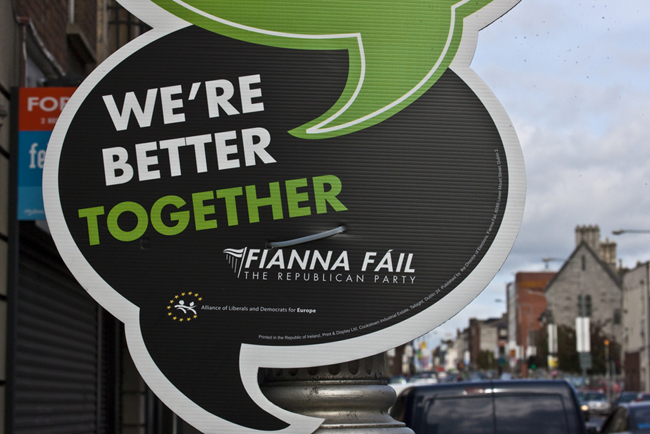Politics
Irish give decisive ‘aye’ to EU reform on second try

Ireland's recession-hit voters have overwhelmingly approved the EU’s ambitious, oft-delayed reform plan. The result was greeted with cheers in Dublin, and sighs of relief from bureaucrats in Brussels.
Ireland has been a key obstacle to the overall ratification of the Lisbon Treaty, the massive agreement to modernise and strengthen the 27-nation bloc’s institutions and decision-making powers, and make it congruent with the EU’s growth in size in the past five years. The treaty allows decisions by majority vote, rather than unanimous agreement , and gives a larger say to both national parliaments and the European parliament in shaping overall policies. Other prominent changes include the creation of a President of the European Council with a term of two-and-a-half years and a High Representative for Foreign Affairs to present a united position on EU policies. If fully ratified, the Lisbon Treaty would also make the EU’s human rights charter, The Charter of Fundamental Rights, legally binding on member states.
The Irish – the only EU citizens voting directly for a complex legal document that has been eight years in the making – stunned Brussels last year with a surprise rejection based on fears that a stronger EU would force Ireland to raise business taxes, participate in a European army and legalise abortion. After assurances the EU would not force change on any of these, the Irish took a new vote, this time decisively passing the treaty. Irish prime minister Brian Cowen said afterwars, “We have taken a decisive step for a stronger, fairer and better Ireland, and a stronger, fairer and better Europe.” The final vote in the second referendum was 67.1% in favour and 32.9% against, with a turnout of 59%.
The Irish vote is expected to have some important broader implications for Europe as a whole and for the EU treaty in particular. For example, the Czech parliament had passed the treaty earlier this year, but final ratification awaited president Vaclav Klaus. Klaus was at first in no hurry to sign the document, then said he would sign if the Irish ratified it. Complicating matters in the Czech Republic is a pending ruling by their Constitutional Court that could bring the final decision nearer to the date of the UK’s election in 2010. The Conservatives, likely winners in the UK, have said they’ll put the treaty to a referendum if not ratified by the time of they win. Meanwhile, in Poland, president Lech Kaczynski said it would be pointless to give his final signature before solving the earlier Irish vote issue. A few days ago, however, a senior Polish official said Kaczynski would sign if the Irish voted “yes” the second time around. This Irish vote will probably have a significant impact on the remaining nations to ratify the Lisbon Treaty, pointing towards substantially more EU clout in global political and economic affairs.
By Brooks Spector





 Become an Insider
Become an Insider